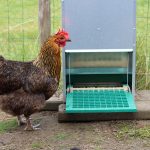Can Chickens Eat Ticks? Health Risks Explained
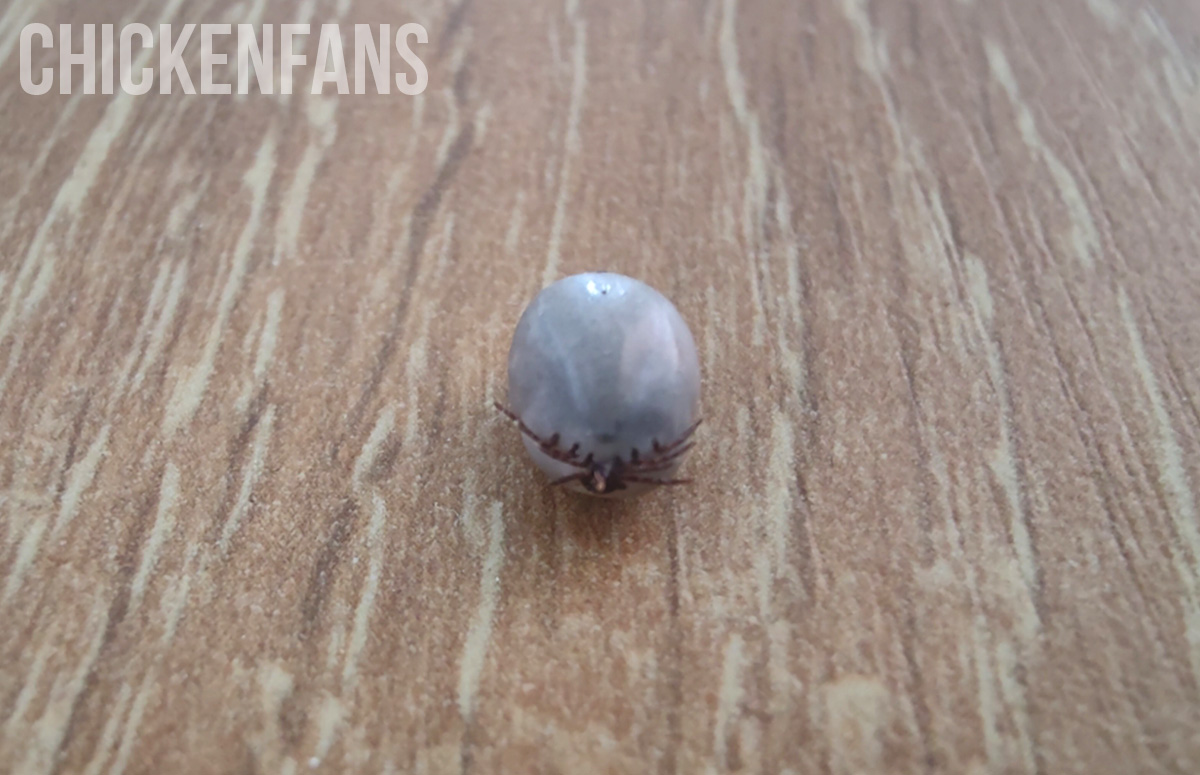
Birds eat ticks. Chickens are birds. So that means chickens eat ticks, right? Relatively, yes. Chickens do eat ticks. And quite a lot of them. However, there are many nuances when it comes to this subject.
Many backyard keepers often raise this question because they want to know whether or not chickens can act as a natural form of pest control against ticks. But to determine whether or not they’re suited for that role, there are a few things that you need to know.
Do Chickens Eat Ticks?
Yes, chickens do eat ticks. Chickens are omnivores; their diet consists of grains, fruits, vegetables, leftovers, worms, insects, and, and also, ticks. Some people even believe chickens can act as natural pest control against ticks, but that statement should be taken with a grain of salt.
A study published in Veterinary Parasitology mentions that chickens can, in fact, be used as natural predators of ticks, but this research only focused on tick-infested cattle rather than a free-range environment.
In this particular study, chickens consumed up to 331 ticks in a single foraging session. The study concluded that an average chicken can consume an average of 80 ticks per hour of tick-infested cattle. They also preferred unengorged ticks to engorged ticks.
Additionally, another study by the Onderstepoort Veterinary Institute in South Africa shows that chickens also consume ticks that fall off cattle, with an average of 28 ticks per chicken.
With all that, backyard keepers seem to be on the right track. Chickens do consume ticks. However, are chickens an effective means of pest control against ticks?
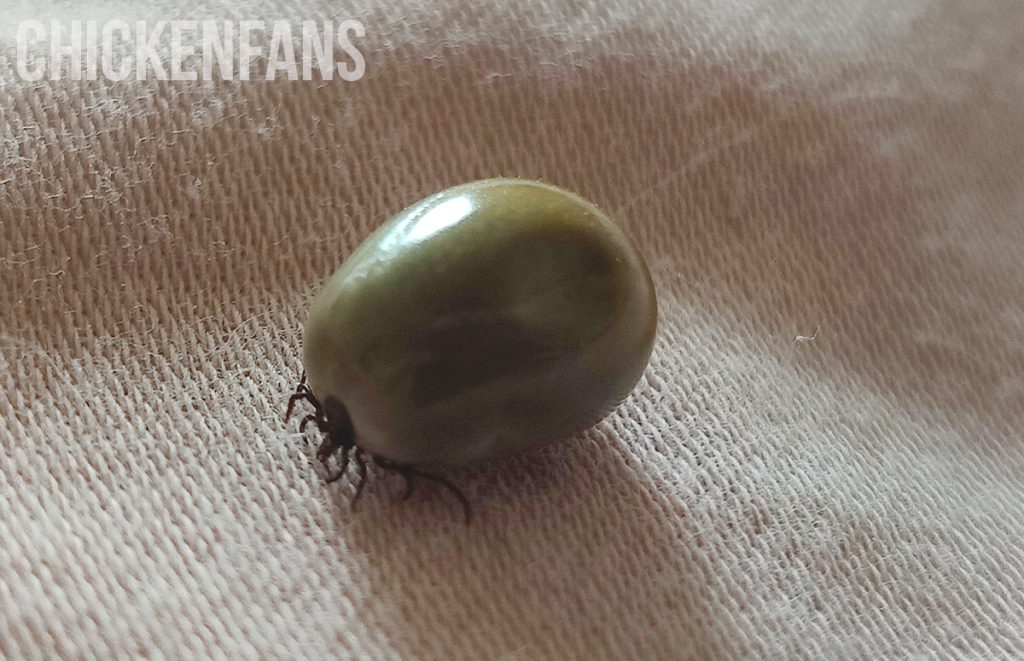
Can Chickens Act as Natural Pest Control Against Ticks?
Not really. While studies prove that chickens consume ticks, they don’t serve as a good way to tell whether or not chickens are effective in curbing a tick infestation in your backyard.
Both studies only focused on livestock ticks in and didn’t showcase a chicken’s ability to do that in a free-range environment.
Additionally, the conditions in those studies don’t universally apply everywhere else. As such, take those studies with a grain of salt.
The most chickens can do is help reduce the number of ticks roaming around in your backyard. But they do little to solve the actual problem itself.
If you do end up raising chickens to help deal with ticks in your backyard, know that not all chicken breeds are proficient at it. Heritage breeds are much better at roaming than commercial breeds due to their keen instincts as hunters, personalities, and physiology.
Some examples of chicken breeds that love to free range and collect bugs:
However, many chicken experts don’t recommend raising chickens to counter ticks. Instead, consulting a pest control expert is the best way to handle this situation. Because letting your chickens eat ticks can pose a different threat to them.
Is It Dangerous For Chickens To Eat Ticks?
Ticks pose no threat as a food source for chickens. However, they can hitch a ride on your chickens’ skin during the feeding process. When this happens, the chickens can easily spread the ticks all over your backyard and even into your house.
Another thing to note is that there are several kinds of ticks. Among them, fowl ticks are the worst kind for your chickens.
As their name suggests, they mainly prey on domestic fowl, like chickens. While chickens can consume them without any issues, the problem lies in spreading the ticks in the coop.
Fowl ticks can easily latch themselves onto a roaming chicken. When that happens, the chickens unknowingly bring these pests into the coop, leading to a bigger problem.
The ticks now have a food source and a home where they can breed. And since these ticks only come out at night to feed, it will be quite difficult to spot them.
A tick infestation in your chicken coops can lead to a stressful environment for your chickens. Additionally, fowl ticks carry a bacteria that can cause avian spirochetosis. This could lead to weight loss, diarrhea, reduced egg production, and even death.
How To Tell Your Chickens Are Suffering From Ticks?
A few telltale signs could indicate whether or not there’s a tick infestation in your chicken coop. The first of these signs is a lack of coordination.
Ticks are external parasites that can lead to irritation and restlessness among your chickens. If you find a couple of chickens in your flock walking funny or losing their sense of balance, take a closer look and inspect whether or not they have ticks on them.
Ticks don’t always hide; they might become apparent even on the most peculiar and exposed areas of an animal’s body. In the image provided, you can observe a tick situated at the corner of a cat’s eye.
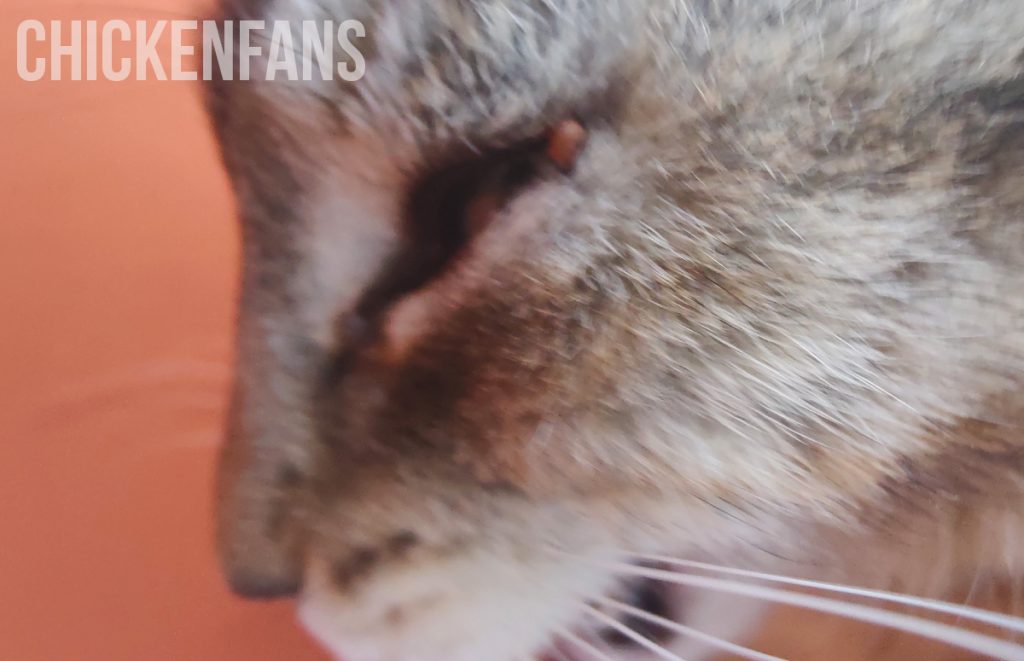
While doing so, this is also a good time to check for the second sign, blood spots. These will immediately tell you if there are ticks feasting on your birds.
Another sign is the loss of feathers. More often than not, chickens will try and peck at the infected areas to help relieve the irritation and restlessness they feel whenever a tick feeds on them.
Can Chickens Get Lyme Disease From Eating Ticks?
No, chickens can’t contract Lyme disease from ticks during consumption. The bacteria responsible for Lyme disease, Borrelia burgdorferi, can’t withstand the acidity within a chicken’s stomach. The bacteria get digested or stressed out to the point of losing their infectiousness.
However, chickens can still contract the disease if the ticks latch onto and feed on them. But the tick needs to stay attached to the chickens for around 36 to 48 hours to transfer the bacteria. Even then, chickens have a method of dealing with these troublesome ticks.
And that method is by preening their feathers. And if they can’t reach the ticks by themselves, other chickens can join the fray and help remove the ticks in hard-to-reach areas.
Other Parasites That Harm Chickens
Ticks are not the only parasites that can cause harm to your chickens. A few others can prove to be more problematic, and in this section, you will learn more about them.
Red Mites
Red mites share quite a few similarities with ticks. Not only do they feed on the blood of your chickens, but they also cause stress, sleep deprivation, blood loss, and reduced weight.
However, red mites are much smaller in comparison to ticks, and they come out to feed at night. It only takes them around an hour to finish feeding, and right after that, they will go back into hiding, usually in small cracks and crevices in the chickens’ coop. As such, spotting them during the day is quite difficult.
Additionally, red mites reproduce at an exponential rate. When left alone, a small population of red mites can quickly turn into a full-blown infestation within a week. That’s because it only takes a week for the eggs to turn into full-fledged adults.
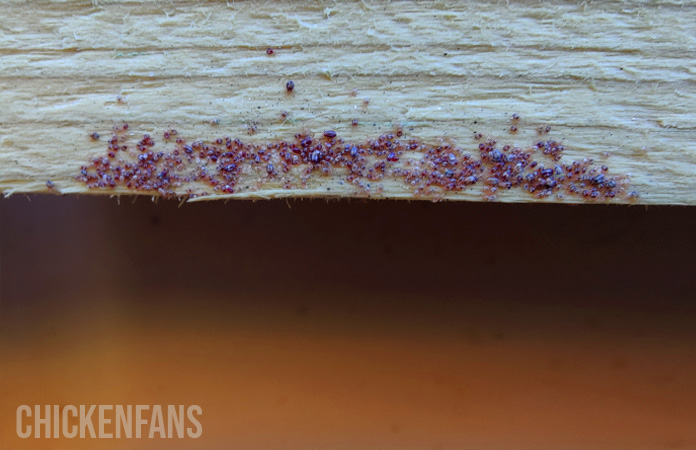
Red mites can also cause skin irritation in your chickens, which could lead to an increase in feather pecking. If left alone, this could easily lead to cannibalism within the flock.
Additionally, red mites are hosts to a variety of diseases. Pasteurella, Erysipelas, E. coli, and Salmonella are just some of the diseases that red mites can carry.
Lice
Another parasite that you need to look out for are lice. These small, brown pests often reside near a chicken’s vent as they feed on the dead skin and quill casings of the chicken.
Stress, weight loss, bald spots, feather loss, and listlessness are some of the symptoms that your chicken will exhibit when facing a lice infestation. In some instances, these pests can also lead to an uptick in your chickens’ mortality rate.
Worms
Unlike the other parasites discussed in this article, roundworms are internal parasites that live inside a chicken’s intestines. Depending on the age of your chickens, the severity of the symptoms will vary significantly. But in most cases, chickens that are three months old or younger will show more signs that they are suffering from roundworms.
These symptoms include weight loss, paleness, depression, and diarrhea. They will also show signs of reduced activity within the flock and will often spend most of the time within the coop.
The best way to combat these parasites is to have your chickens undergo a deworming process. However, your chickens need to be at least eight months old since the process can cause a lot of stress.
Insects Or Pests That Are Safe For Chickens To Eat
Thankfully, there are quite a few insects that chickens can munch on when foraging without you having to worry about their overall health. Let’s take a look.
Potato Beetles
The first one on this list is arguably the one that can cause the most harm in any garden. Potato beetles are a pest that will happily eat all the plants in your garden, including crops such as tomatoes, vegetables, cabbages, and the like.
So having a flock of chickens nearby is a boon for your garden. Not only will your chickens be bodyguards against the invasive potato beetles, but they’ll also earn a nice meal for themselves in the process.
Slugs
Just like the potato beetles, slugs are not good to have in any garden. They will often bore holes into the leaves of your plants, destroying their beauty in the process. Additionally, there are cases where they will eat any seedlings that you decide to plant in your garden.
Because of how slow and soft their bodies are, slugs are a good snack for chickens to consume because they don’t need to work that hard to hunt for them. However, there are very few cases where a slug can harm or even kill a chicken.
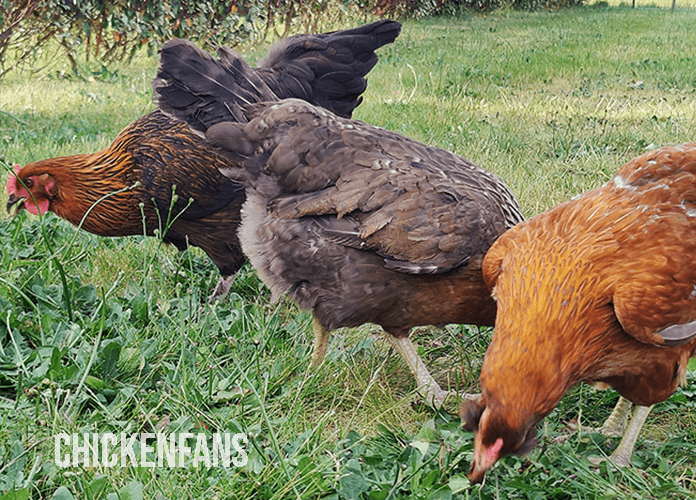
Most slugs secrete slime as a defense mechanism whenever they’re in danger. The slime acts as some sort of thick, gooey barrier that will make some predators think twice about eating them.
So if your chickens decide to swallow a slug whole without killing it first, they’re in for an unpleasant experience. In some cases, the slime is so thick that it can lead to choking, and for smaller chickens, it can lead to death.
While slugs are a tasty snack for your chickens, most chicken keepers recommend that you kill them first before feeding them to your chickens. That way, you can avoid the whole slime ordeal.
Grasshoppers
Another insect that can cause severe harm to your garden is the grasshopper. These herbivores enjoy chowing down on the stems and leaves of your plants, and if you don’t take care of them first, they can wreak serious havoc in your garden.
Thankfully, chickens enjoy looking for these insects and turning them into light snacks. So if you’re raising a flock of chickens alongside your garden, the grasshoppers won’t have a chance to feast on your plants.
Millipedes
Whenever a chicken sees something wriggling on the ground, more often than not, they will peck at it and eat it. And millipedes are no exception to this.
Even though millipedes don’t harm your garden, unlike some of the ones discussed so far, they are a good snack for chickens to munch on.
Various Larvae
Chickens love to munch on different types of larvae. From flies to ants, termites, and even moths, chickens will eat all of them happily.
By eating those larvae that are crawling around in your backyard, chickens also help curb their population and prevent them from turning into pests. So you don’t have to worry about these critters eventually making their way inside your home as full-grown adults.
Summary
Chickens will consume ticks whenever they see one, but don’t let that fool you into thinking that having a flock of chickens in your backyard is good enough as a form of natural pest control. The relationship between the two works both ways, as ticks can also feed on chickens and, if left alone, can lead to problems down the line.
If you want to read more about chicken health problems, symptoms, and diseases, check out our ‘Health Page‘. Or go to ‘The Classroom‘ and find a comprehensive list of all Chicken Fans articles.





















